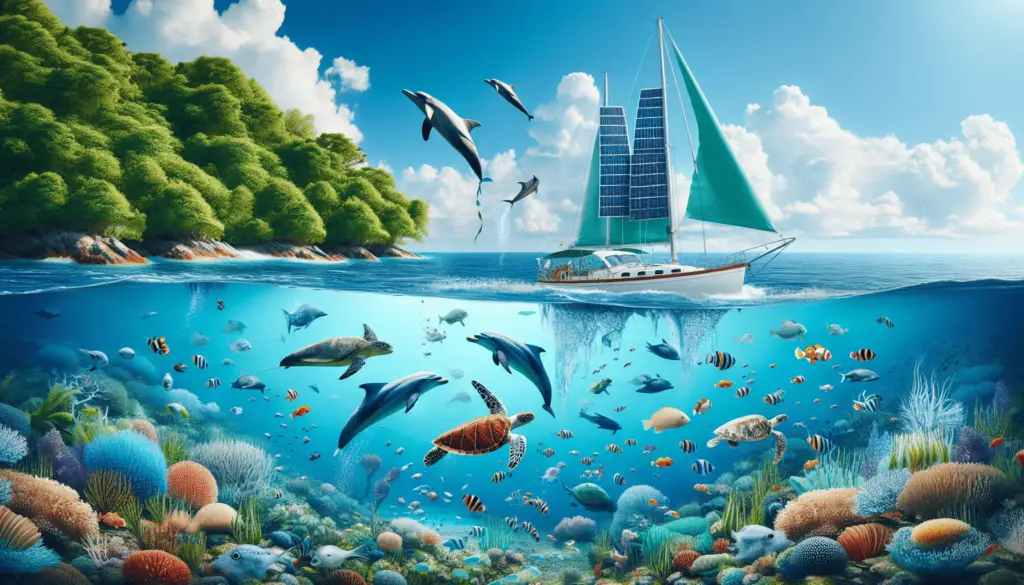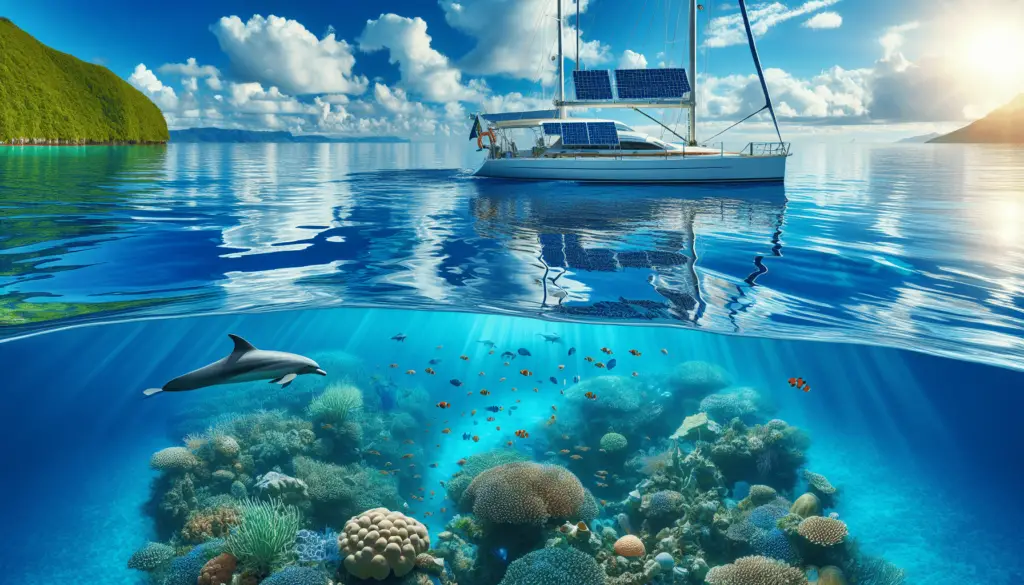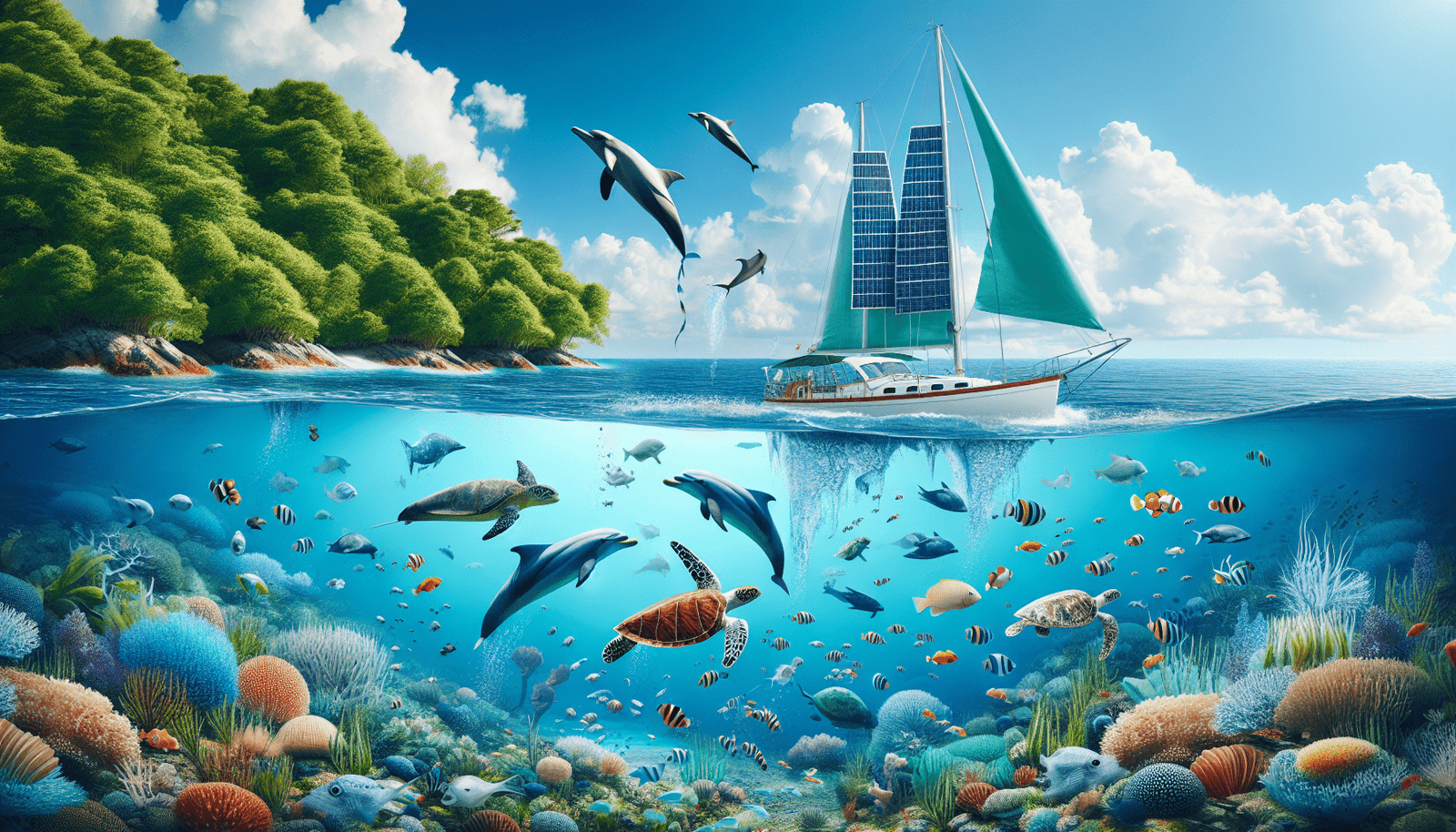Imagine spending your weekends sailing on a serene blue sea, with the gleam of sparkling water surrounding you. The boating lifestyle can be incredibly beautiful and peaceful, but it also carries a responsibility towards the environment. This article is all about “Promoting Environmental Awareness in Boating Communities.” It outlines different ways you can contribute to the sustainability of our gorgeous water bodies while enjoying your boating adventures. From adopting clean boating practices to participating in eco-friendly initiatives, you’ll find numerous methods to make a positive impact. So, prepare yourself to chart a course towards more sustainable boating and brace for an inspiring journey ahead.
Understanding Environmental Impact of Boating
The beautiful moments of sailing through water bodies can be mesmerizing. However, unbeknownst to many, these fantastic experiences may come at a price. We need to grapple with the environmental impact of boating and consider what we can do about it.
Effects of boating on water bodies
The pristine blue water bodies that you adore so much are often under unseen stress due to boating activities. Continuous usage of boats has a range of effects that degrade the quality of these water bodies. An array of pollutants like oil, gas, sewage, and detergents often find their way into the waterways thanks to irresponsible boating practices. Propellers can stir up sediments, disrupting the balance of the marine ecosystem.
The impact on aquatic life
It’s not just about the water itself. The floras and faunas that make up the aquatic ecosystem suffer as well. Noise pollution from boat engines can disrupt communication among marine animals. This leads to changes in their behavior and even harmful physical effects. Excessive boat traffic can also disrupt feeding and nesting periods for certain species, leading to population decline.
Carbon footprint from boat engines
Every time you rev up your boat’s engine, it releases carbon emissions into the atmosphere. Boat engines, especially older models, are less efficient than car engines, and they can produce significant amounts of carbon monoxide. The sheer volume of boats worldwide means these emissions add up, contributing to the overall problem of climate change.
Creating Environmental Awareness
Now that we are aware of the impact we are having on our precious water bodies, it’s time to spread the word.
Communicating the impact of boating activities on the environment
To combat the adverse effects of boating on the environment, we first need to ensure that everyone is on the same page. Communicating the impact of boating can be done through various channels, including social media, newsletters, posters at marinas, or by word of mouth.
Organizing seminars and workshops on environmental preservation
Seminars and workshops can provide comprehensive knowledge about the environmental hazards posed by irresponsible boating. They can educate on the right boating practices, like proper waste management and the use of eco-friendly products.
Developing and sharing educational materials
Aside from seminars and workshops, educational materials such as pamphlets, booklets, and online resources play a crucial part in raising environmental awareness. These materials can provide an abundance of information that boaters can refer to at their own pace and convenience.

Promoting Sustainable Boating Practices
Taking measures to limit the environmental damage caused by boating entails advocating for sustainable boating practices.
Encouraging use of environmentally friendly engines
Environmentally friendly engines, such as those running on electric power or biofuel, release fewer pollutants into the air and water. By encouraging their use, we can significantly mitigate the environmental effect of boating.
The importance of regular maintenance of boats
Maintaining your boat’s engine is not only good for your boat’s performance but also for the environment. Regular maintenance can spot leaks that could lead to oil spills, and ensure that engines are running as cleanly and efficiently as possible.
Proper waste disposal while at sea
One of the primary culprits of water pollution is improper waste disposal. Boaters should ensure that all waste is disposed of in designated sites on land. In addition, recyclable materials should be separated and placed in recycling facilities.
Building Stronger Boating Communities
With the same understanding of the environmental impact of boating and the same commitment to preserving the environment, stronger boating communities can be built.
Fostering a culture of environmental responsibility
Building a culture of environmental responsibility within the boating community should be a priority. This can be encouraged through activities and events that promote environmental conservation, such as beach clean-ups or eco-tours.
Regular community meetings and discussions
Regular meetings and discussions among community members can provide platforms to share ideas, experiences, and challenges regarding sustainable boating. These discussions can establish social norms for environmentally responsible behavior and ensure that everyone understands the community’s environmental goals.
Setting and enforcing community rules to protect the environment
Setting community rules is an effective way to enforce sustainable practices. These might include limits on boat sizes or speeds, restrictions on waste disposal, or requirements for boat maintenance. Enforcement is key- rules without consequence won’t bring about the change we desire.

Benefits of Environmental Conservation to Boating Community
Conservation efforts bear fruit in the preservation of our marine ecosystems, which in turn offer numerous benefits.
Preservation of aquatic ecosystems
Aquatic ecosystems support a diversity of life, and their preservation promises the continued existence of the species that inhabit our waters. Plus, maintaining the health of these ecosystems ensures that future generations can also enjoy the beauty of our water bodies.
Reduced health risks
Pollutants in water bodies can pose health risks to both animals and humans. By keeping our waters clean, we can reduce these risks and ensure the health and safety of all who enjoy the water.
Enhanced scenic beauty
Simply put, clean and healthy water is more beautiful. By preserving our marine environments, we can continue to enjoy the scenic beauty that our water bodies provide.
Role of Boating Equipment Manufacturers
Those who produce the boats and equipment that we use also play a key part in promoting environmental awareness.
Producing environmentally-friendly products
Manufacturers can help by producing products that are environmentally friendly. This includes boats with cleaner engines and accessories made from recyclable materials. They can also innovate to make products like biodegradable boat cleansers that don’t harm marine life.
Providing environmental safety information with products
Including environmental safety information in product packages is a proactive way manufacturers can encourage boaters to operate in an environmentally friendly manner. This information could include tips for maintenance and operation that minimize environmental impact and instructions for the safe disposal of the product at the end of its life.
Role in educating boaters about sustainable practices
Manufacturers can support campaigns for environmental awareness, contributing to the education of boaters about the environmental impact of their activities and the ways they can work to reduce that impact.
Government Policies and Environmental Conservation
Public bodies and regulations also have a significant role in promoting and ensuring the environmental conservation of our water bodies.
Development of policies to protect the marine environment
Governments can develop policies to protect the marine environment from the consequences of boating. Regulations may include standards for boat emissions, restrictions on boat operation in certain sensitive areas, or requirements for waste disposal from boats.
Monitoring and enforcement of these policies
For policies to be effective, they must be enforced. Surveillance systems can help track compliance, and penalties for non-compliance can help ensure that boaters take the regulations seriously.
Role of Government in environmental education
Governments can integrate marine conservation into educational programs, fostering an understanding of marine ecosystems and the threats posed to them. This aids in creating an informed society which cares for and respects its marine resources.
Collaboration with Environmental Conservation Organizations
Partnerships with organizations that specialize in environmental conservation offer a wealth of benefits and opportunities.
Promoting and supporting the work of such organizations within the community
There are numerous conservation organizations out there doing amazing work to protect our water bodies. By promoting and supporting their work, boating communities can contribute to conservation efforts and learn from the expertise of these organizations.
Exploring partnership opportunities
By partnering with conservation organizations, boating communities can avail of resources and expertise that help them to better protect their local environment. This could mean jointly organizing educational events or cleanup activities, or it could mean implementing best-practice guidelines developed by the organizations.
Learning from best practices of these organizations
Conservation organizations have a wealth of knowledge about what works in environmental protection. Boating communities can learn from these best practices and adapt them for their own use.
Educational Programs and Initiatives
A solid foundation in marine conservation can pave the way for future generations to be good stewards of our water bodies.
Developing and implementing educational programs to promote environmental awareness
Educational programs on environmental awareness can be embedded in both formal and informal settings. Whether it’s a module in school or a workshop in the local community center, these programs give us the tools we need to preserve our environment.
Supporting initiatives aimed at preserving the marine environment
Efforts to preserve the marine environment can be enhanced by community support. This could be financial support, participation in events, or the provision of resources like boats or equipment.
Impact of marine conservation studies in schools and other educational institutions
Marine conservation studies aren’t just for the academics; they’re for all of us. With such studies, students learn about the importance of protecting marine ecosystems. This knowledge can spark a passion for conservation and inspire a new generation of environmental stewards.
Case Studies and Success Stories
Sometimes, it helps to know that others have walked the path before us, and that their efforts have borne fruit.
Success stories of boating communities implementing sustainable practices
There are boating communities out there that have successfully transitioned to more sustainable practices. These stories can inspire us and show us that change is not only possible, but also rewarding.
Examples of change in behavior following environmental awareness campaigns
Environmental awareness campaigns can bring about significant change in the way boaters interact with the environment. Concrete examples of such behavioural changes are testament to the power of knowledge.
Impact of governmental and non-governmental interventions in environmental protection
Both government and non-governmental organizations have brought about significant changes in environmental protection. Their initiatives have led to cleaner waters, healthier ecosystems, and more educated communities, showing us that concerted effort on all levels can make all the difference.
In summary, promoting environmental awareness in boating communities is a multi-faceted effort involving individual boaters, boating communities, equipment manufacturers, governmental bodies, and environmental organizations. By working together, we can protect and preserve our water bodies for the enjoyment of generations to come.

